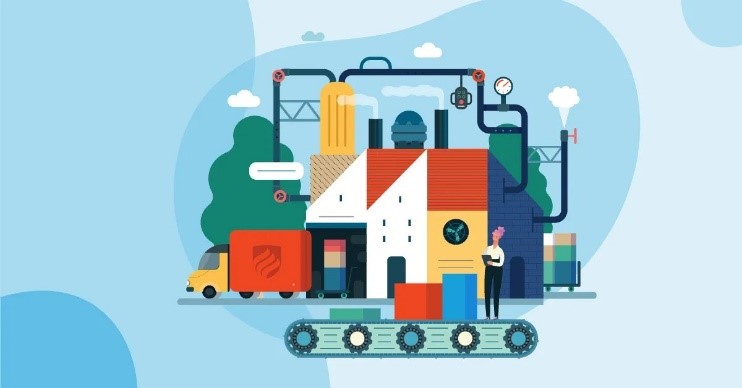Introduction to Manufacturing or Warehouse Jobs
In this rapidly advancing and interconnected world, manufacturing and warehousing are the backbone of many industries. These businesses play an important role in the production and efficient distribution of goods, which contribute significantly to the growth of the global economy. Let’s embark on a journey exploring the ins and outs of working in manufacturing and warehousing, providing valuable feedback and guidance.
The Importance of Manufacturing and Warehouse Jobs
Manufacturing and warehousing activities are at the heart of the global economy, ensuring increased productivity and meeting consumer demand. The manufacturing sector transforms raw materials into finished products and supplies various industries, while warehouses act as an important link in the distribution sector, facilitating the storage and distribution of products.
Warehouse Jobs Demystified
Acting as central storage and inventory management centers, warehouses play an important role in the supply chain. They are created for the smooth flow of goods from the manufacturer to retailers and finally to consumers.
Essential Skills for Warehouse Jobs
Logistics requires strong organizational skills, attention to detail, and the ability to work effectively in a fast-paced environment. Collaboration and problem-solving skills are essential to resolve any issues that may arise.
Advantages and Challenges of Working in Warehouses
A variety of career opportunities in a warehousing career; There are many benefits including career growth potential and exposure to a variety of industries. However, warehouse work can be physically demanding, and workers can adjust regular working hours.
Work Environment and Responsibilities
Man Manufacturing jobs that involve hands-on production require technical skills and precision. Warehouse operations, on the other hand, include the coordination of freight and distribution. The workplace is diverse enough to accommodate different talents and interests.
Job Growth and Advancement Opportunities
Both manufacturing and warehouse jobs offer career growth potential. Manufacturers may have the opportunity to move into supervisory or management roles, while warehouse workers may advance to roles such as warehouse supervisors or logistics managers.
Job Market and Demand for Manufacturing and Warehouse Jobs
Current Trends in the Job Market:
Demand for manufacturing and warehouse jobs is affected by economic conditions, technological advances and consumer behavior. Some manufacturing industries may experience a shift in demand based on consumer needs, while warehousing continues to grow due to the rise of e-commerce.
Factors Influencing the Demand for Jobs:
The demand for job creation is often linked to the success of the business in which they operate. As consumer preferences change and new technologies emerge, the demand for certain products changes. On the other hand, warehousing is in constant demand due to the need for better supply chain management.
Future Outlook for the Sectors:
The manufacturing and retail sectors are witnessing major changes due to advances in technology and automation. While some jobs may be used, new roles are emerging that require skills in operating and maintaining advanced technologies.
Preparing for a job in the manufacturing or product industry often involves obtaining the necessary education and training. Professional certification, college degree, or bachelor’s degree in engineering, logistics, or other fields is necessary for production and sales.
Developing Relevant Skills and Experience
Along with formal training, you can gain hands-on experience through internships and practicums to gain practical skills and insight into the field. Developing soft skills like teamwork, communication and adaptability are equally important for career advancement.
Finding Job Opportunities
Job seekers can explore a variety of ways to find jobs in manufacturing or warehouses, including online job portals, company websites, and industry job fairs. Networking with professionals in the field can open up valuable career opportunities.
Balancing Work Demands in Warehousing
Working in a warehouse can be fast-paced and physically demanding, requiring employees to manage their time effectively and maintain a healthy work-life balance. Employers who prioritize employee well-being contribute to job satisfaction and retention.
Strategies for Maintaining Work-Life Balance
Employees can implement a variety of strategies to achieve work-life balance, such as setting limits, prioritizing self-care, and seeking support from family and friends. Maintaining a healthy balance contributes to your overall well-being and work performance.
Conclusion
Manufacturing and warehousing are essential to many industries, including automotive, electronics, pharmaceuticals, retail and e-commerce. These departments are often looking for qualified experts to help them grow and succeed.
